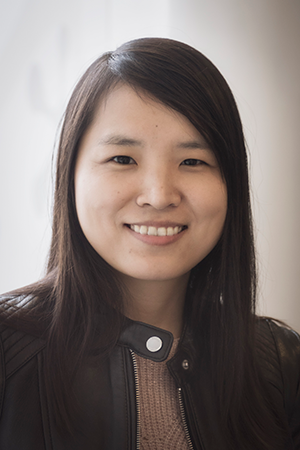
Yun Li
Biography
Dr. Yun Li is a neurobiologist interested in understanding human brain development and diseases. She completed graduate training at the University of Texas Southwestern Medical Center, and postdoctoral training at the Whitehead Institute and MIT. In 2018, Dr. Li established her independent lab in Toronto.
She is currently a Scientist at SickKids Research Institute, an Assistant Professor at the University of Toronto, and a Medicine by Design Investigator. Her laboratory studies how the human brain forms, what makes it unique from those of other species, and how disorders like autism impact its development and function. Her group takes the experimental approach of modeling human brain development in the dish, utilizing a combination of pluripotent stem cell technology, CRISPR/Cas9-mediated genome engineering, and 3D brain organoids.
Research
The Li Lab is interested in understanding how the human brain forms, what makes it unique from that of other species, and how disorders like autism impact its development and function. We take the experimental approach of modeling human brain development in the dish, utilizing a combination of pluripotent stem cell technology, genome editing, and three-dimensional organoid cultures. Our current research focuses on investigating the emergence of human-specific neural cell types and cortical features, and studying the molecular mechanisms underlying autism.
Education and experience
- 2002–2008: PhD, University of Texas Southwestern Medical Center, Dallas, TX, USA.
- 2009–2017: Post-doctoral Fellow, Whitehead Institute, Massachusetts Institute of Technology, Boston, MA, USA.
- 2018–Present: Scientist, SickKids Research Institute, Toronto, ON, Canada.
- 2018–Present: Assistant Professor, University of Toronto, Toronto, ON, Canada.
Achievements
- 2008: New Investigator Award, American for Society for Neurochemistry
- 2009: Dean’s Award, University of Texas Southwestern Medical Center
- 2012: Young Investigator Award, NARSAD
- 2016: Bridge to Independence Award, Simons Foundation
- 2018: Medicine by Design Investigator, University of Toronto
- 2019: Advisory Editorial Board Member, Disease Models & Mechanisms.
- 2020: Young Investigator Award, Brain & Behavior Research Foundation
- 2020: Organizing Committee Member, Till & McCulloch Meetings
- 2021: Organizing Committee Member, International Conference on Stem Cell Engineering
Publications
- Tian A, #Muffat J and #Li Y (2020) Studying human neurodevelopment and diseases using 3D brain organoids. Journal of Neuroscience 40 (6): 1186-1193. PMC7002141. #Co-corresponding authors.
- *Li Y, *Muffat J, *Omer Javed A, *Keys HR, Lungjangwa T, Bosch I, Khan M, Virgilio MC, Gehrke L, Sabatini DM and Jaenisch R (2019) Genome-wide CRISPR screen for Zika virus resistance in human neural cells. Proceedings of the National Academy of Sciences 116 (19): 9527-9532. *Co-first authors.
- *Omer Javed A, *Li Y, *Muffat J, Su K, Cohen, MA, Lungjangwa T, Aubourg P, Cheeseman IM, and Jaenisch R (2018) Microcephaly modeling of kinetochore mutation reveals a brain-specific phenotype. Cell Reports 25: 368-382. PMC6392048. *Co-first authors.
- *Li Y, *Muffat J, Omer A, Bosch I, Lancaster M, Sur M, Gehrke L, Knoblich J, and Jaenisch R (2017) Induction of expansion and folding in human cerebral organoids. Cell Stem Cell 20: 385-396. PMC6461394. *Co-first authors.
- Li Y, Wang H, Muffat J, Cheng AW, Orlando DA, Loven J, Kwok S, Feldman DA, Bateup HS, Gao Q, Hockemeyer D, Mitalipova M, Lewis CA, Vander Heiden MG, Sur M, Young RA, and Jaenisch R (2013) Global transcriptional and translational repression in human-embryonic-stem-cell-derived Rett Syndrome neurons. Cell Stem Cell 13(4): 446-458. PMC4053296.
- 2021–2023: Brain & Behavior Research Foundation
- 2020–2026: Natural Sciences and Engineering Research Council of Canada
- 2020–2022: Stem Cell Network
- 2020–2022: Canadian Gene Cure Advanced Therapies for Rare Disease
- 2019–2022: Simons Foundation Autism Research Initiative
- 2019–2021: Sharon Francis Institute for Regenerative Medicine
- 2018–2022: Medicine by Design, University of Toronto
- 2018–2019: Ontario Institute for Regenerative Medicine

